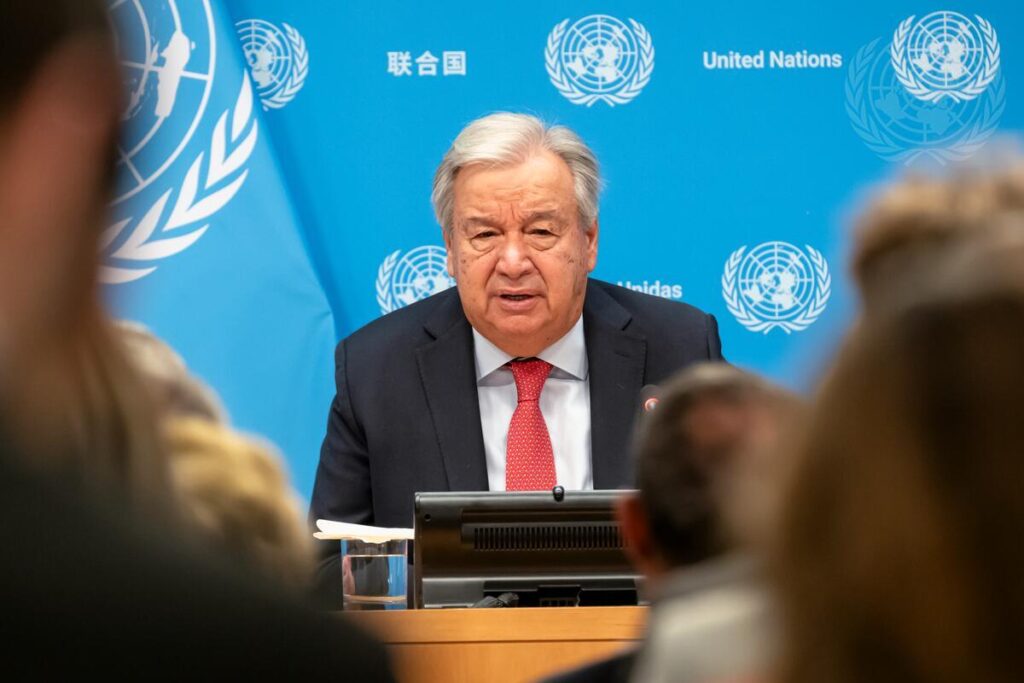New York, September 18, 2024 – Current international institutions created after World War II in 1945 need to be reformed as they have failed challenges posed by a series of runaway situations, from climate change to deadly conflicts, debt and poverty, the United Nations chief said days before world leaders are to hold the Summit of the Future.
UN Secretary-General Antonio Guterres urged the 130 heads of countries and governments and scores of ministers of the 193 member states of the United Nations to work in a spirit of compromise to “show the world what we can do, when we work together.”
He said negotiations on the outcome document for the summit, called Pact for the Future, are in the final stretch before the summit taking place September 22-23 at UN headquarters in New York. UN member states are to hold the organization’s annual meetings in September, including a political debate September 24-30 in the UN General Assembly.
UN member states are expected to also adopt at the summit a Global Digital Compact and Declaration on Future Generations annexed to it.
“The Summit of the Future was born out of a cold, hard fact: international challenges are moving faster than our ability to solve them,” Guterres said. “We see out-of-control geo-political divisions and runaway conflicts – not least in Ukraine, Gaza, Sudan and beyond.”
“Runaway climate change. Runaway inequalities and debt. Runaway development of new technologies like Artificial Intelligence – without guidance or guardrails. And our institutions simply can’t keep up.”
The summit is discussing deep reform of the 15-nation Security Council, which UN leaders said has become paralyzed by Russia’s war in Ukraine, the Israel-Hamas war in Gaza and to call for changes in international financial organizations.
Guterres said those institutions were “born in a bygone era for a bygone world. So many of the challenges that we face today were not on the radar 80 years ago when our multilateral institutions were born. Our founders understood that times would change.”
He said already discussions over the Pact for the Future have achieved “potential breakthroughs on a number of important fronts,” including the “strongest language” on the UN Security Council reform in a generation – and the most concrete step towards council enlargement since 1963. The council is currently composed of five dominant and permanent members – the US, Russia, China, United Kingdom and France – and 10 countries elected for 2-year terms.
The discussions have also resulted in the first set of governance measures for new technologies, including Artificial Intelligence, in all their applications — with the UN at its center, Guterres said. Other advances were made over financing for the Sustainable Development Goals (SDGs) and commitment to advance an SDG Stimulus plan to boost support to developing countries.
“It would be tragic if all of these would be lost,” he warned. “We can’t create a future fit for our grandchildren with systems built for our grandparents.”
“The Summit of the Future is an essential first step towards making global institutions more legitimate, effective, and fit for the world of today and tomorrow. I urge Member States to seize this opportunity.” (By J. Tuyet Nguyen)
United Nations journalists – United Nations journalists – United Nations journalists
United Nations News – United Nations News – UN Correspondents Association – UNCA Awards

